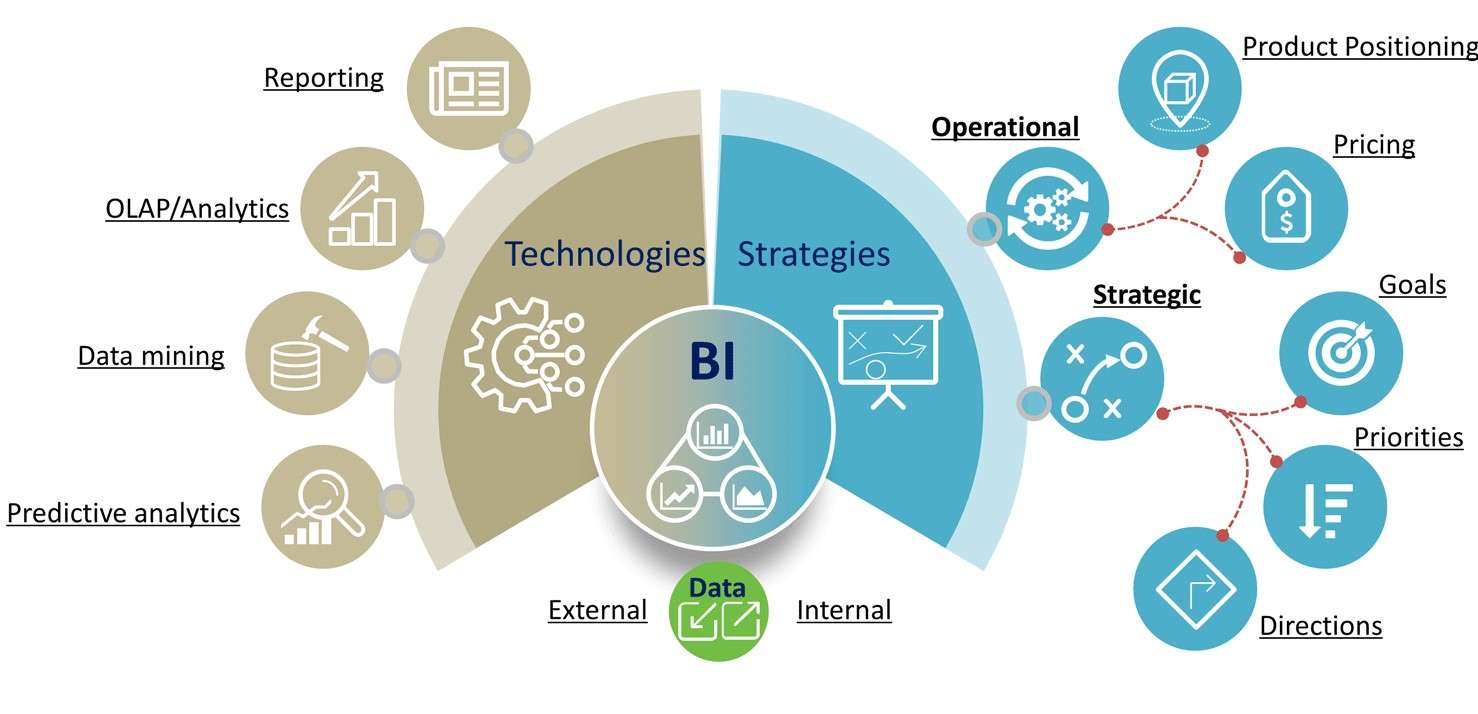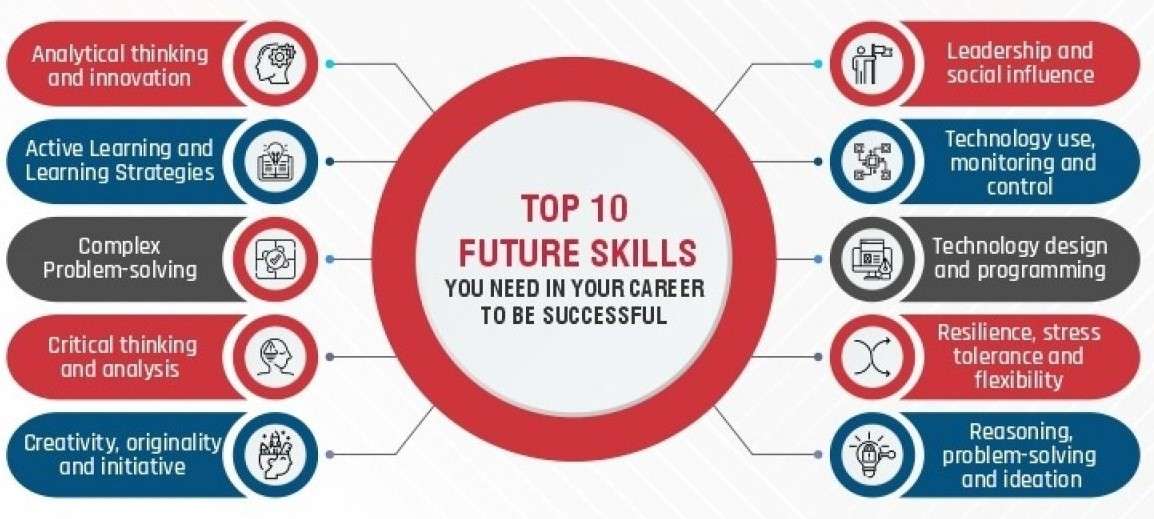
- Introduction
- What is Business Intelligence (BI)?
- Why is BI a Promising Career in future
- Core Skills for a Successful BI Career
- The Versatility of BI Career Paths
- Business Intelligence: A Key Driver for Companies in Future
- Top Industries Hiring BI Professionals
- Salary and Career Growth Opportunities
Introduction
Business Intelligence (BI) has rapidly emerged as one of the most promising and rewarding career options in today’s data-driven world. As organizations increasingly rely on data to make strategic decisions, the demand for skilled BI professionals has soared across industries. BI involves analyzing data to provide actionable insights, improve efficiency, and drive business growth. Business Analyst Training combines technical expertise with business acumen, making it ideal for individuals who enjoy working with data and solving real-world problems. With tools like Power BI, Tableau, and SQL, professionals can uncover trends, forecast outcomes, and support decision-making processes at all levels of an organization. Moreover, BI roles offer diverse career paths, including data analyst, BI developer, and data engineer, each with strong growth potential and competitive salaries. The field is continuously evolving, offering opportunities to learn and grow with emerging technologies like AI and machine learning. Whether you are a recent graduate, a tech enthusiast, or a professional looking to switch careers, BI provides a future-proof option that combines innovation, impact, and job security. Its blend of technology and business strategy makes it a compelling choice for anyone aiming to play a crucial role in the success of modern enterprises.
Do You Want to Learn More About Business Analyst? Get Info From Our Business Analyst Training Today!
What is Business Intelligence (BI)?
- Data Collection: BI collects data from multiple sources like databases, spreadsheets, and cloud services to build a unified data foundation.
- Data Integration: Top Business Intelligence Tools help merge data from different systems and departments, ensuring consistency and accuracy across the organization.
- Data Analysis: BI tools analyze data to identify trends, patterns, and insights that can influence business strategy.
Business Intelligence (BI) is a technology-driven process that helps organizations collect, analyze, and visualize data to make informed business decisions. It enables companies to convert raw data into actionable insights, improving efficiency, productivity, and strategic planning. BI combines tools, methods, and best practices to provide a clear view of current performance and future opportunities.

- Data Visualization: Platforms like Power BI and Tableau present data in visual formats such as dashboards and charts for easy understanding and reporting.
- Informed Decision-Making: BI helps businesses make evidence-based decisions by providing real-time and historical data insights.
- Performance Monitoring: It tracks key performance indicators (KPIs) and metrics, allowing organizations to measure success and respond to operational changes quickly.
Why is BI a Promising Career in Future
Business Intelligence (BI) continues to be a highly promising career path in Future due to the growing reliance on data-driven decision-making across all industries. As organizations face increasing competition and complexity, the need for professionals who can transform raw data into meaningful insights is greater than ever. BI specialists play a crucial role in helping companies optimize operations, understand customer behavior, and forecast market trends using tools like Power BI, Tableau, and advanced analytics. With the rise of big data, cloud computing, and artificial intelligence, BI has evolved into a dynamic field offering a blend of technical, analytical, and strategic responsibilities. Companies in sectors such as finance, healthcare, retail, and technology are actively seeking BI professionals to gain a competitive edge especially those familiar with tools like Tableau and the Types of Filters in Tableau making it a high-demand and well-compensated career option. Moreover, the field offers diverse roles from BI analysts and developers to data engineers and consultants, each with strong growth potential. The continuous innovation in data technologies ensures long-term relevance and career stability. For those who enjoy working with data, solving complex problems, and making a tangible impact on business outcomes, BI offers a future-ready and fulfilling career in the digital economy.
Would You Like to Know More About Business Analyst? Sign Up For Our Business Analyst Training Now!
Core Skills for a Successful BI Career
- Data Analysis:Strong analytical skills are crucial for interpreting complex datasets, identifying trends, and drawing actionable insights.
- SQL and Database Management: Proficiency in SQL and understanding relational databases helps in extracting and managing data from various sources, opening doors for those looking to Tableau Career Opportunities explore in the field of data analytics.
- BI Tools Proficiency: Hands-on experience with tools like Power BI, Tableau, or Qlik is essential for creating reports, dashboards, and data visualizations.
A successful career in Business Intelligence (BI) requires a blend of technical knowledge, analytical thinking, and business understanding. BI professionals must be capable of handling data efficiently, interpreting it accurately, and presenting it in a way that supports strategic decision-making. As the field continues to grow in complexity and importance, mastering the right set of skills is essential for long-term success.

- Data Warehousing Concepts: Knowledge of data warehousing, ETL (Extract, Transform, Load) processes, and data modeling ensures smooth data integration and storage.
- Critical Thinking and Problem-Solving: The ability to think logically and solve business problems through data is key in developing impactful BI solutions.
- Communication Skills: BI professionals must present insights to non-technical stakeholders, making communication and storytelling with data a vital skill.
- Data-Driven Decision Making: BI enables real-time, evidence-based decisions by providing accurate insights from large volumes of data.
- Improved Operational Efficiency: By identifying inefficiencies and optimizing workflows, BI helps companies reduce costs and enhance productivity a goal that can be achieved effectively by Mastering Power BI Dashboard
- Customer Insights and Personalization: BI tools analyze customer behavior and preferences, allowing businesses to create targeted, personalized experiences.
- Predictive Analytics: With advanced forecasting and trend analysis, companies can anticipate market shifts and make proactive decisions.
- Competitive Advantage: Access to timely and relevant insights allows businesses to stay ahead of competitors and adapt quickly to changes.
- Strategic Planning and Growth: BI supports long-term planning by highlighting growth opportunities, market gaps, and potential investment areas.
The Versatility of BI Career Paths
The field of Business Intelligence (BI) offers a wide range of career paths, making it one of the most versatile domains in the modern job market. BI professionals are in demand across virtually every industry, from finance, healthcare, and retail to manufacturing, education, and technology, because every organization needs data-driven insights to remain competitive. This versatility allows individuals to tailor their careers based on interests and strengths. For example, those with strong analytical skills may pursue roles as BI analysts or data scientists, while those who excel in technology and coding can thrive as BI developers or data engineers. Professionals with a knack for strategy and business acumen can explore roles like BI consultants or analytics managers, especially when supported by Business Analyst Training. Furthermore, the growing use of AI, machine learning, and cloud platforms in BI has opened new opportunities for specialization in advanced analytics and data architecture. BI roles often serve as a bridge between technical teams and business leaders, making them ideal for individuals who enjoy collaboration and impact. Whether you’re entering the workforce or transitioning from another field, the adaptability, cross-industry relevance, and upward mobility of BI careers make them an excellent choice in today’s evolving job landscape.
Looking to Master Business Intelligence? Discover the Business Intelligence Master Program Training Course Available at ACTE Now!
Business Intelligence: A Key Driver for Companies in Future
In Future, Business Intelligence (BI) stands as a critical force behind the success of modern companies. As data becomes increasingly central to operations, marketing, customer engagement, and innovation, organizations rely on BI to make faster, smarter, and more strategic decisions. BI not only enhances operational efficiency but also provides a competitive edge by transforming data into valuable business insights.
Top Industries Hiring BI Professionals
In Future, the demand for Business Intelligence (BI) professionals spans across a wide range of industries, reflecting the universal importance of data-driven decision-making. As organizations strive to gain competitive advantages and optimize performance, BI experts are being actively recruited in sectors such as finance, where data analysis is essential for risk assessment, fraud detection, and investment strategies. The healthcare industry leverages BI to improve patient care, streamline operations, and manage large volumes of clinical data, benefits that become clearer with Power BI Architecture Explained Retail and e-commerce companies rely heavily on BI to understand customer behavior, manage inventory, and personalize marketing efforts. In the manufacturing sector, BI is used to enhance supply chain efficiency, reduce production costs, and ensure quality control. The technology and IT sector continues to lead in adopting BI for innovation, performance monitoring, and product development. Additionally, telecommunications, education, and government agencies are increasingly employing BI professionals to manage resources, analyze trends, and improve service delivery. This cross-industry demand makes BI a highly flexible and future-proof career choice. Whether in private corporations or public institutions, BI skills are now considered essential for strategic planning and operational success, making it one of the most sought-after professions in the evolving job market.
Salary and Career Growth Opportunities
Business Intelligence (BI) offers strong salary potential and significant career growth opportunities, making it one of the most attractive fields in today’s job market. In Future, BI professionals are among the top earners in the data and analytics domain, with entry-level roles such as BI analysts earning competitive starting salaries, and experienced professionals like BI developers, data engineers, and BI managers commanding even higher pay. Salaries vary based on location, industry, and skill level, but the overall earning potential remains high due to the growing demand for data expertise. Beyond financial rewards, BI offers a clear and dynamic career path with opportunities to advance into senior roles such as BI architect, data science lead, or analytics director especially for those who have completed Business Analyst Training The continuous evolution of data technologies such as AI, machine learning, and cloud-based analytics opens doors for specialization and upskilling, keeping the career trajectory upward. Many organizations also offer professional development programs, certifications, and on-the-job learning to support BI career advancement. Whether you start as a data enthusiast or transition from a different field, BI provides a solid foundation for long-term success, job stability, and leadership roles in a rapidly digitalizing world.


